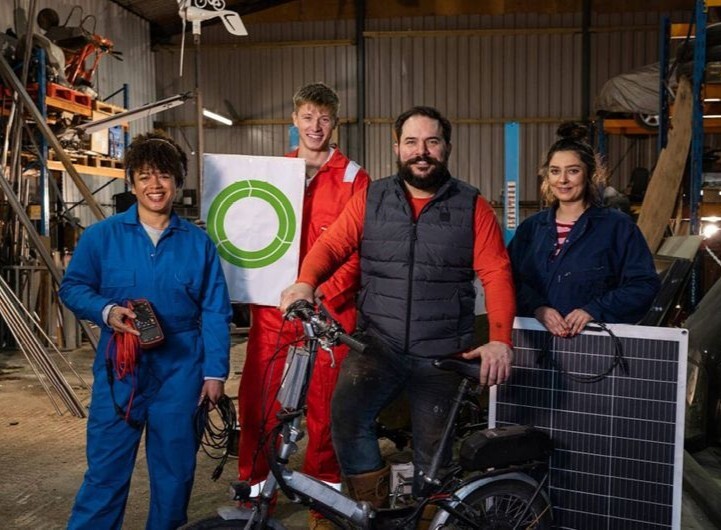CEBIC proves commercial success of circular business models

Victoria’s Circular Economy Business Innovation Centre (CEBIC) is proving that circular transformation is not only possible but commercially profitable.
Driving circular change across Victoria
Between 2020 and 2024, CEBIC provided over $11 million in funding to support innovators and early adopters, and to incentivise industry collaboration focused on developing solutions that go beyond recycling – aimed at preventing waste and keeping products and materials circulating at their highest value for longer.
From the built environment to food and organics, textiles, and design, CEBIC enabled sector-wide systems change. Over 8,000 professionals were upskilled through circular economy events, masterclasses, and training sessions, with 95% reporting an increased capacity to act. The program also published 11 research pieces and developed 4 sector-based action plans to guide future circular strategies.
Real impact, measurable results
CEBIC supported 51 projects that:
- avoided over 170,000 tonnes of waste
- reduced or avoided more than 260,000 tonnes of CO₂-e emissions
- created over 220 jobs
- launched 140 circular products and services.
These outcomes show that circularity is good for sustainability and business.
When innovation becomes best practice
CEBIC-backed initiatives explored regenerative materials, reuse and repair infrastructure, food waste valorisation, and modular building remanufacturing. These projects demonstrate how higher-order circularity can deliver both environmental and commercial value.
Importantly, 84% of projects continued beyond initial funding, and 69% secured additional investment. This is how innovation scales – through targeted support that sparks real, lasting change.
Transforming operations and infrastructure
Rendine Constructions, in partnership with the University of Melbourne and PrefabAus, is repurposing obsolete components from the Victorian School Building Authority to create modular buildings. With $227,100 in funding, the project reused 90% of a steel frame in a prototype, developed a sustainable materials database, and created frameworks to verify recycled steel’s structural integrity, demonstrating how circular design can be applied in real-world construction.
Meanwhile, Refashioning: Accelerating Circular Product Design at Scale is an essential guide for brands to reshape the future of Australia’s fashion industry. Developed by RMIT University with Country Road Group and funded by Sustainability Victoria, the guide brings together government, research, and industry to embed circular design across the product lifecycle. It offers practical tools for brands to reduce waste and adopt circular models at scale.
Driving circular innovation in food and agriculture
CEBIC is helping reshape how we produce, process, and value food. At the Queen Victoria Market, STREAT’s Open Sauce project is turning organic waste into commercial sauces, generating new revenue streams and creating job pathways for disadvantaged youth.
In the Goulburn Valley, Cathedral Cherries is transforming post-harvest waste into shelf-ready food and drink products. It's part of a growing trend in agri-food innovation, where circularity is used to address both productivity and sustainability.
And through targeted sector partnerships, like the one led by Dairy Australia, CEBIC is supporting industry-wide food waste reduction. The next phase of the Dairy Food Waste Action Plan focuses on measurement, sector wide commitment, and implementation – moving beyond strategy into action.
Closing the Loop in Manufacturing and Services
In the B2B services sector, Green Collect is piloting a Circular Capabilities Package for office-based organisations, helping teams build practical skills in reuse, procurement, and waste minimisation. It’s a response to increased demand for ESG-aligned workplace operations.
Bettercup, a reusable cup provider, is scaling its cleaning and logistics infrastructure to service major events. With support from CEBIC, the company is reducing the cost of circular systems for event organisers – removing a key barrier to uptake.
Technology and supply chain solutions are also growing, with Reece Group mapping circular opportunities across its operations, and Reground developing the Circular Economy Exchange (CEE), a digital marketplace designed to connect linear businesses with circular suppliers.
CEBIC has demonstrated what’s possible when we invest in Victorian businesses to design out waste and validate commercially viable circular models. The results speak for themselves – new jobs, lower emissions, and a more resilient economy. Looking ahead, Sustainability Victoria will continue to foster collaboration and connection across value chains, unlocking partnership opportunities that help businesses scale and innovate within a thriving circular economy.
20 years of changing what’s possible
For two decades, we have led the way to a sustainable future – cutting waste, driving down emissions, and turning policy into real action across homes, communities, and businesses.
But none of it happens without you, Victoria. Your choices. Your drive. Your belief in a better way.